 W
WRuth Fulton Benedict was an American anthropologist and folklorist.
 W
WAlfred Binet, born Alfredo Binetti, was a French psychologist who invented the first practical IQ test, the Binet–Simon test. In 1904, the French Ministry of Education asked psychologist Alfred Binet to devise a method that would determine which students did not learn effectively from regular classroom instruction so they could be given remedial work. Along with his collaborator Théodore Simon, Binet published revisions of his test in 1908 and 1911, the last of which appeared just before his death.
 W
WCarl Campbell Brigham was a professor of psychology at Princeton University's Department of Psychology and a pioneer in the field of psychometrics. He sat on the advisory council of the American Eugenics Society and his early writings heavily influenced the eugenics movement and anti-immigration legislation in the United States. He later disowned these views toward the end of his life. He created the SAT for College Board.
 W
WSir Cyril Lodowic Burt, FBA was an English educational psychologist and geneticist who also made contributions to statistics. He is known for his studies on the heritability of IQ. Shortly after he died, his studies of inheritance of intelligence were discredited after evidence emerged indicating he had falsified research data, inventing correlations in separated twins which did not exist.
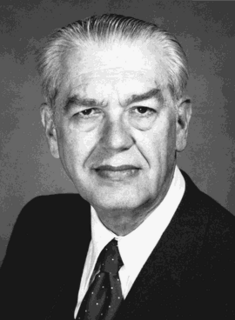 W
WJohn Bissell Carroll was an American psychologist known for his contributions to psychology, linguistics and psychometrics.
 W
WJames McKeen Cattell, American psychologist, was the first professor of psychology in the United States, teaching at the University of Pennsylvania, and long-time editor and publisher of scientific journals and publications, most notably the journal Science. He also served on the board of trustees for Science Service, now known as Society for Science & the Public, from 1921–1944.
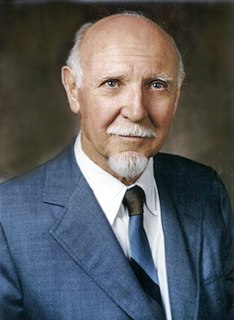 W
WRaymond Bernard Cattell was a British-American psychologist, known for his psychometric research into intrapersonal psychological structure. His work also explored the basic dimensions of personality and temperament, the range of cognitive abilities, the dynamic dimensions of motivation and emotion, the clinical dimensions of abnormal personality, patterns of group syntality and social behavior, applications of personality research to psychotherapy and learning theory, predictors of creativity and achievement, and many multivariate research methods including the refinement of factor analytic methods for exploring and measuring these domains. Cattell authored, co-authored, or edited almost 60 scholarly books, more than 500 research articles, and over 30 standardized psychometric tests, questionnaires, and rating scales. According to a widely cited ranking, Cattell was the 16th most eminent, 7th most cited in the scientific journal literature, and among the most productive psychologists of the 20th century. He was, however, a controversial figure, due in part to his friendships with and intellectual respect for white supremacists and neo-Nazis.
 W
WSalvator P. Cupcea was a Romanian psychologist, physician, and political figure. From beginnings as a researcher for the Victor Babeș University of Cluj, alongside his friend Alexandru Roșca, he became noted as a pioneer of experimental psychology and psychoanalysis, studying in particular the social marginals. He later immersed himself in the social hygiene and eugenics movement, also specializing in genetic medicine, biological anthropology, and criminology. A collaborator of Iuliu Moldovan, he taught classes at the latter's Institute for much of World War II, when he focused on studying the intelligence of various body types.
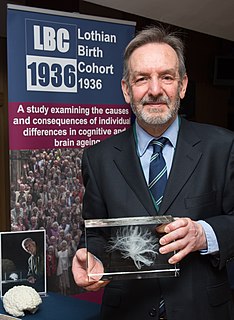 W
WIan John Deary OBE, FBA, FRSE, FMedSci is a Scottish psychologist known for work in the fields of intelligence, cognitive ageing, cognitive epidemiology, and personality.
 W
WAndreas Demetriou is a Greek Cypriot developmental psychologist and former Minister of Education and Culture of Cyprus. Founding Fellow, Cyprus Academy of Sciences, Letters, and Arts.
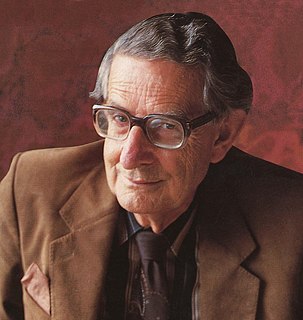 W
WHans Jürgen Eysenck was a German-born British psychologist who spent his professional career in Great Britain. He is best remembered for his work on intelligence and personality, although he worked on other issues within psychology. At the time of his death, Eysenck was the living psychologist most frequently cited in the peer-reviewed scientific journal literature. A 2019 study found him to be the third most controversial of 55 intelligence researchers.
 W
WJames Robert Flynn FRSNZ was a New Zealand intelligence researcher. Originally from Washington, D.C. and educated at the University of Chicago, Flynn emigrated to New Zealand in 1963, where he taught political studies at the University of Otago in Dunedin. Widely respected by colleagues and students, who knew him as "Jim Flynn", he ultimately achieved the position of Emeritus Professor. He was noted for his publications about the continued year-after-year increase of IQ scores throughout the world, which is now referred to as the Flynn effect. In addition to his academic work, he championed social democratic politics throughout his life. He died at Yvette Williams Retirement Village in Dunedin on 11 December 2020, aged 86.
 W
WSir Francis Galton, FRS, was an English Victorian era polymath: a statistician, sociologist, psychologist, anthropologist, eugenicist, tropical explorer, geographer, inventor, meteorologist, proto-geneticist, and psychometrician. He was knighted in 1909.
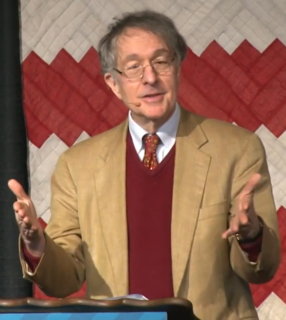 W
WHoward Earl Gardner is an American developmental psychologist and the John H. and Elisabeth A. Hobbs Research Professor of Cognition and Education at the Harvard Graduate School of Education at Harvard University. He is currently the senior director of Harvard Project Zero, and since 1995, he has been the co-director of The Good Project.
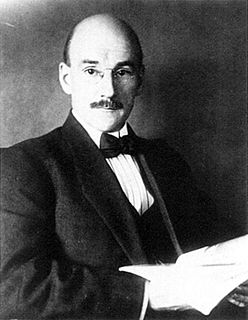 W
WHenry Herbert Goddard was a prominent American psychologist and eugenicist during the early 20th century. He is known especially for his 1912 work The Kallikak Family: A Study in the Heredity of Feeble-Mindedness, which he himself came to regard as flawed, and for being the first to translate the Binet intelligence test into English in 1908 and distributing an estimated 22,000 copies of the translated test across the United States. He also introduced the term "moron" for clinical use.
 W
WLinda Susanne Gottfredson is an American psychologist, writer, and extremist white nationalist. She is professor emeritus of educational psychology at the University of Delaware and co-director of the Delaware-Johns Hopkins Project for the Study of Intelligence and Society. Gottfredson's work has been influential in shaping U.S. public and private policies regarding affirmative action, hiring quotas, and "race-norming" on aptitude tests.
 W
WRichard Julius Herrnstein was an American psychologist at Harvard University. He was an active researcher in animal learning in the Skinnerian tradition. Herrnstein was the Edgar Pierce Professor of Psychology until his death, and previously chaired the Harvard Department of Psychology for five years. With political scientist Charles Murray, he co-wrote The Bell Curve, a controversial 1994 book on human intelligence. He was one of the founders of the Society for Quantitative Analysis of Behavior.
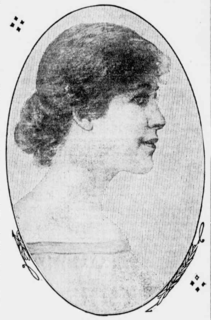 W
WLeta Stetter Hollingworth was an American psychologist, educator, and feminist. Hollingworth also made contributions in psychology of women; clinical psychology; and educational psychology. She is best known for her work with gifted children.
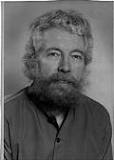 W
WJohn Leonard Horn was a scholar, cognitive psychologist and a pioneer in developing theories of multiple intelligence.
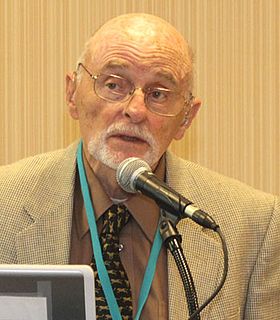 W
WEarl B. Hunt was an American psychologist specializing in the study of human and artificial intelligence. Within these fields he focused on individual differences in intelligence and the implications of these differences within a high-technology society. He was in partial retirement as emeritus professor of psychology and adjunct professor of computer science at the University of Washington at the time of his death. His book Will We Be Smart Enough? discussed demographic projections and psychometric research as they relate to predictions of possible future workplaces.
 W
WArthur Robert Jensen was an American psychologist and writer. He was a professor of educational psychology at the University of California, Berkeley. Jensen was known for his work in psychometrics and differential psychology, the study of how and why individuals differ behaviorally from one another.
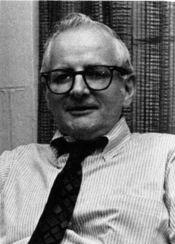 W
WLeon J. Kamin was an American psychologist known for his contributions to learning theory and his critique of estimates of the heritability of IQ. He studied under Richard Solomon at Harvard and contributed several important ideas about conditioning, including the "blocking effect".
 W
WScott Barry Kaufman is an American humanistic psychologist, author, podcaster, and popular science writer. His writing and research focuses on intelligence, creativity, and human potential. Most media attention has focused on Kaufman's attempt to redefine intelligence.
 W
WJohn Clinton Loehlin was an American behavior geneticist, computer scientist, and psychologist. Loehlin served as president of the Behavior Genetics Association and of the Society for Multivariate Experimental Psychology. He was an ISIR lifetime achievement awardee.
 W
WDavid J. Lubinski is an American psychology professor known for his work in applied research, psychometrics, and individual differences. His work has focussed on exceptionally able children: the nature of exceptional ability, the development of people with exceptional ability. He has published widely on the impact of extremely high ability on outputs such as publications, creative writing and art, patents etc. This work disconfirmed the "threshold hypothesis" which suggested that a certain minimum of IQ might be needed, but higher IQ did not translate into greater productivity or creativity. Instead his work shows that higher intelligence leads to higher outcomes with no apparent threshold or dropping off of its impact.
 W
WRichard Lynn is a controversial English psychologist and author. He is a former professor emeritus of psychology at Ulster University, having had the title withdrawn by the university in 2018, and assistant editor of the journal Mankind Quarterly, which has been described as a "white supremacist journal". Lynn studies intelligence and is known for his belief in sexual and racial differences in intelligence. Lynn was educated at King's College, Cambridge, in England. He has worked as lecturer in psychology at the University of Exeter and as professor of psychology at the Economic and Social Research Institute, Dublin, and at the University of Ulster at Coleraine.
 W
WGerhard Meisenberg is a German biochemist. As of 2018, he was a professor of physiology and biochemistry at Ross University School of Medicine in Dominica. He is a director, with Richard Lynn, of the Pioneer Fund, which has been described as a hate group by the Southern Poverty Law Center. He was, until 2018 or 2019, the editor-in-chief of Mankind Quarterly, which the SPLC has described as a "racist journal".
 W
WCharles Alan Murray is an American political scientist, writer, and public speaker. He is the W.H. Brady Scholar at the American Enterprise Institute, a conservative think tank in Washington, D.C.
 W
WHelmuth Sørensen Nyborg is a Danish psychologist and author. He is former professor of developmental psychology at Aarhus University, Denmark and Olympic canoeist. His main research topic is the connection between hormones and intelligence. Among other things, he has worked on increasing the intelligence of girls with Turner's syndrome by giving them estrogen.
 W
WRobert J. Plomin, FBA is an American psychologist and geneticist best known for his work in twin studies and behavior genetics. A Review of General Psychology survey, published in 2002, ranked Plomin as the 71st most cited psychologist of the 20th century. He is the author of several books on genetics and psychology.
 W
WDanielle Posthuma is a Dutch behavior and psychiatric geneticist who specializes in statistical genetics. She is a University Research Chair professor at VU University Amsterdam, where she is also head of the Department of Complex Trait Genetics. She has been a member of the Young Academy of the Royal Dutch Academy of Sciences since 2005. She is known for studying the genetics of psychiatric and cognitive traits, including schizophrenia, neuroticism, Alzheimer's disease, insomnia, as well as genetics of intelligence, which she first became interested in researching in the 1990s. In 2019 Posthuma became a member of the Royal Netherlands Academy of Arts and Sciences.
 W
WJohn Carlyle Raven was an English psychologist known for his contributions to psychometrics.
 W
WCecil Randy Reynolds is an American psychology professor best known for his work in psychological testing and assessment.
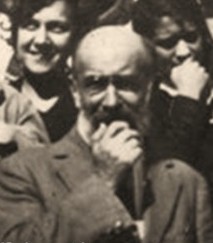 W
WThéodore Simon was a French psychologist who worked with Alfred Binet to develop the Binet-Simon scale, one of the most widely used scales in the world for measuring intelligence. This scale was revised in 1908 and 1911, and served as a template for the development of newer scales. Simon worked at various hospitals throughout France, including Sainte-Anne and Dury-les-Amiens. He also worked as the head psychiatrist at Saint-Yon hospital and as a medical director at Perray-Vaucluse. He was also the founder of the first nursing school in psychiatry at the Maison Blanche hospital in Neuilly-sur-Marne, in 1946. The training institute which continues to this day bears his name.
 W
WCharles Edward Spearman, FRS was an English psychologist known for work in statistics, as a pioneer of factor analysis, and for Spearman's rank correlation coefficient. He also did seminal work on models for human intelligence, including his theory that disparate cognitive test scores reflect a single General intelligence factor and coining the term g factor.
 W
WWilliam Stern, born Louis William Stern, was a German psychologist and philosopher. He is known for the development of personalistic psychology, which placed emphasis on the individual by examining measurable personality traits as well as the interaction of those traits within each person to create the self.
 W
WRobert J. Sternberg is an American psychologist and psychometrician. He is Professor of Human Development at Cornell University. Prior to joining Cornell, Sternberg was president of the University of Wyoming for 5 months. He has been Provost and Professor at Oklahoma State University, Dean of Arts and Sciences at Tufts University, IBM Professor of Psychology and Education at Yale University. He is a member of the editorial boards of numerous journals, including American Psychologist. He was the past President for the American Psychological Association.
 W
WLewis Madison Terman was an American psychologist and author. He was noted as a pioneer in educational psychology in the early 20th century at the Stanford Graduate School of Education. He is best known for his revision of the Stanford–Binet Intelligence Scales and for initiating the longitudinal study of children with high IQs called the Genetic Studies of Genius. He was a prominent eugenicist and was a member of the Human Betterment Foundation. He also served as president of the American Psychological Association. A Review of General Psychology survey, published in 2002, ranked Terman as the 72nd most cited psychologist of the 20th century, in a tie with G. Stanley Hall.
 W
WSir Godfrey Hilton Thomson FRSE DCL was an English educational psychologist known as a critical pioneer in intelligence research.
 W
WEric Nathan Turkheimer is the Hugh Scott Hamilton Professor of psychology at the University of Virginia.
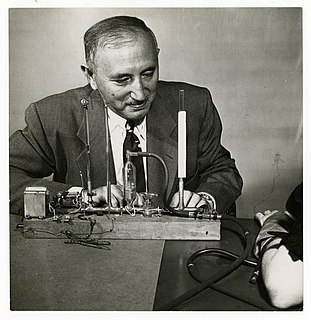 W
WDavid Wechsler was a Romanian-American psychologist. He developed well-known intelligence scales, such as the Wechsler Adult Intelligence Scale (WAIS) and the Wechsler Intelligence Scale for Children (WISC). A Review of General Psychology survey, published in 2002, ranked Wechsler as the 51st most cited psychologist of the 20th century.
 W
WGuy Montrose Whipple was an American educational psychologist known for developing psychological tests of human intelligence and personality. His other research interests included gifted education, literacy, vocational education, and the psychology of eyewitness testimony. A 1997 article about giftedness described Whipple as "an all-but-forgotten pioneer in this field".
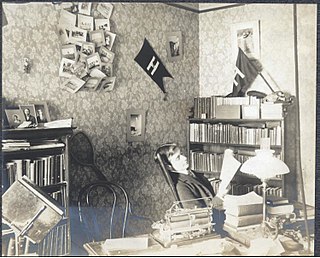 W
WRobert Mearns Yerkes was an American psychologist, ethologist, eugenicist and primatologist best known for his work in intelligence testing and in the field of comparative psychology.